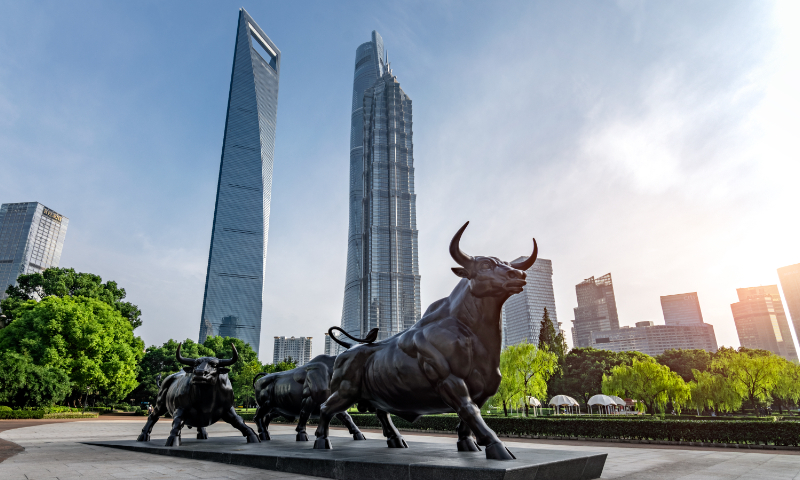Chinese equities continue rebound amid return of global capital

China's benchmark Shanghai Composite Index at one point surged 0.2 percent to 3,163.14 points in Friday's morning trading session, a record high this year. It also represents an over 20-percent jump from the low point of 2,635.09 on February 5, which observers said means that the stocks in the Shanghai bourse are "entering a technical bull market."
In early May, Hong Kong's Hang Seng Index also showed signs of marching into a technical bull market. Analysts said the rally of Chinese stocks underscored a continued warming of investors' sentiment as well as the return of global capital into a market which they deem very promising but has been low valued. The stepped-up recovery of the world's second-largest economy is also giving a leg-up to the capital market rebound, they noted.
The Shanghai Composite Index closed at 3,154.55 on Friday, standing above the 3,100-mark for six consecutive trading days. The sustained surge was also partly thanks to the inflow of northbound funds, which has shown substantial net inflow in recent days.
On April 26, the inflow of northbound funds hit 22.449 billion yuan ($3.11 billion) marking a new high since the launch of the Stock Connect Program. The inflow of northbound funds also reached 10 billion yuan on April 29 and May 6, reflecting an across-the-board interest in investing in Chinese equities.
Data from financial website eastmoney.com shows that northbound funds recorded a net inflow of 87.6 billion yuan to date this year, or more than twice last year's reading.
"First, there's a palpable improvement in investors' mood from January to May, amid more measures to stabilize the market. Second, global capital is now returning to the Chinese market after withdrawing from the US, Europe and Japanese markets," Yang Delong, chief economist at Shenzhen-based First Seafront Fund, told the Global Times on Friday.
The world's financial institutions have reportedly been expanding their footprint in China. An HSBC Holdings Plc report said that more than 90 percent of emerging market funds are adding back their positions in the currently underweight A shares. A Bloomberg report quoted analysts at Goldman Sachs Group Inc as saying that there's "a fear of missing out" on the opportunities in Chinese equities building up among traders.
Analysts noted that the stronger US dollar, coupled with the low valuation of Chinese equities, is one of the reasons behind the inflow of foreign capital. Yang also took note of China's positive economic fundamentals and the government's supportive measures, which have all helped bolster market confidence.
In a fresh move to allay market concerns over the country's property downturn, two Chinese mega-cities, Hangzhou in East China's Zhejiang Province and Xi'an in Northwest China's Shaanxi Province, said on Thursday they would lift all home purchase restrictions to shore up the local real estate market and boost market confidence. This follows similar moves recently in other big cities like Chengdu, Shenzhen and Beijing.
"The slow recovery of the real estate sector has weighed on the outlook of the Chinese economy, so those measures will further strengthen investors' expectations of the robust economic recovery streak," Yang said.
He stressed that the measures addressing the property sector are being carried out in parallel with policies for the capital market, and could therefore constitute a "two-pronged approach" to shore up the A-share market.
Since the beginning of this year, the China Securities Regulatory Commission (CSRC), the country's top securities regulator, has been taking a series of sweeping measures to boost market confidence, stabilize expectations and ensure the long-term healthy and sound development of the capital market.
In April, CSRC published rules to regulate mutual fund trading fees, set to take effect on July 1, 2024. The rules aim to enhance the management of securities trading fees, standardize the allocation of trading commissions by fund managers and safeguard the legal rights of fund shareholders, the CSRC said.
CSRC published on Friday a revised rule intensifying oversight on listed companies, calling for a more stringent risk control mechanism and more transparent information disclosure. Listed companies should better focus on main businesses to ensure investor rights protection and high-quality development.